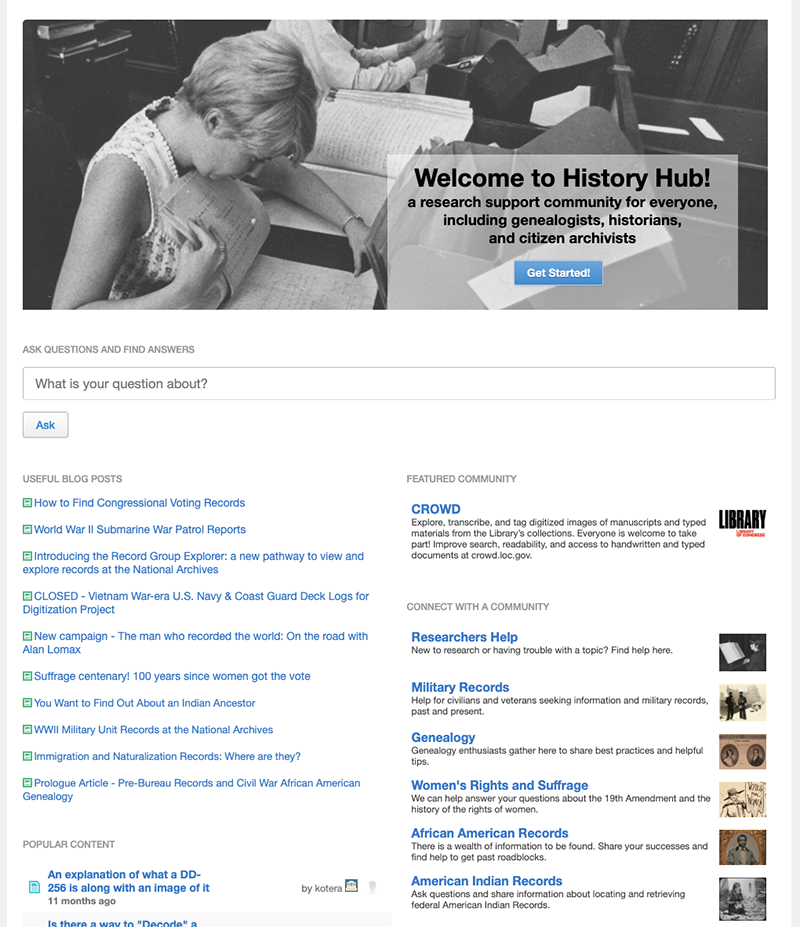
Building the ‘Digital Reference Revolution’ with National Archives’ History Hub
By Victoria Macchi | National Archives News
WASHINGTON, May 15, 2020 —Before the museum doors shut and the buildings emptied of almost all staff in response to COVID-19, there was an online corner of the National Archives that for years has fostered a community that would become even more critical during a pandemic: History Hub.
Where else is an author going to go for a factually accurate location of a World War II–era Army processing center near Brooklyn for her novel?
Or a community member looking for 19th-century immigration records from Canada to the United States for a great-grandparent?
The crowdsourced question-and-answer platform is at the forefront of what History Hub community manager Kelly Osborn calls a “digital reference revolution,” whether people are homebound or not.
"Our goal is to reach audiences unconstrained by location, so the pandemic [response] is in line with how we're trying to respond to the public,” Osborn said.
Darren Cole, History Hub community manager, said the site succeeds by going beyond the confines of the National Archives. Incoming questions can often involve records and information outside the Archives’ holdings, which could lead to a dead end for some researchers. Now, users can be directed to other resources. Staff from other agencies, including the Library of Congress and state archives, can easily share their expertise on a platform that breaks down institutional barriers to research.
“History Hub provides user-centered reference in a collaborative, open environment,” said Pamela Wright, National Archives Chief Innovation Officer. “By drawing on the expertise within the National Archives, as well as the public and other institutions, History Hub provides opportunities for richer, fuller responses than any single expert can provide.”
The National Archives received 38,000 research questions through its website last year, part of 192,000 written research requests total. History Hub participants—which include staff from the Archives and other research professionals, as well as members of the public—fielded nearly 2,000 questions through the Hub.
Topical spaces within the History Hub, like those for Military or African American history, can help researchers hone an inquiry. Researchers, historians, and members of the public can ask and answer each others' questions related to history and genealogical research.
Recent questions on the platform included how to contribute family records that may be of national interest, like slides of firepower demonstrations and air shows, and how to find more information about a relative who was a code-breaker.
“We’re trying to revolutionize how people are able to conduct reference,” Osborn said. “The world is increasingly accustomed to be able to conduct research online.” That, in turn, can lead to the feeling that “if it can’t be found online it doesn’t exist.”
History Hub launched as a pilot program in 2016 and evolved into a platform that fielded nearly 2,000 questions in FY 2019, up from about 400 just two years earlier. More than 10,000 people had registered for History Hub by the end of the last fiscal year.
Visit History Hub for more information or to register to join the community and begin contributing.
